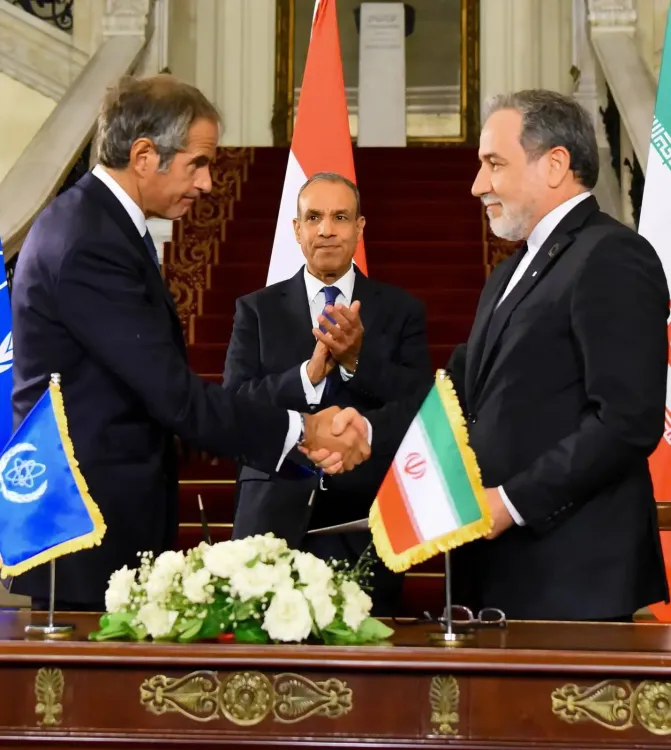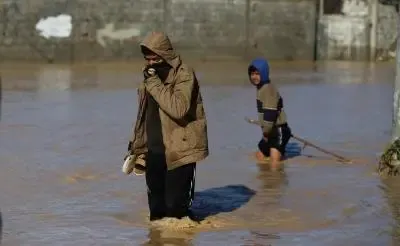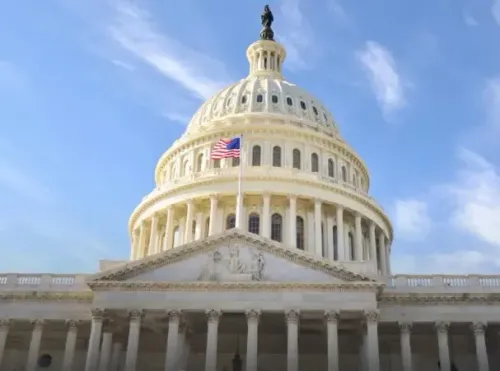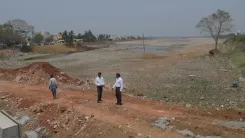What Did Iranian FM and IAEA Chief Discuss in New York?

Synopsis
Key Takeaways
- Iran's Foreign Minister emphasized goodwill in nuclear discussions.
- IAEA chief praised Iran's positive approach towards cooperation.
- The need for responsible behavior from all parties was highlighted.
- Recent sanctions reimposed by European countries add pressure on Iran.
- Iran's cooperation with the IAEA is facing significant challenges.
Tehran, Sep 23 (NationPress) Iranian Foreign Minister Seyed Abbas Araghchi held discussions with Rafael Grossi, the director general of the International Atomic Energy Agency (IAEA), in New York, focusing on the latest developments in their bilateral relationship, as reported by the Iranian Foreign Ministry.
During this meeting, which occurred on the sidelines of the 80th session of the United Nations General Assembly, Araghchi emphasized Iran's goodwill and responsible approach regarding its nuclear affairs.
He highlighted that progress in resolving the nuclear issue hinges on other parties demonstrating responsible behavior and refraining from making excessive demands or misusing the UN Security Council to exert pressure on Tehran, as stated in the report.
In response, Grossi commended Iran’s positive stance in its engagement with the agency, especially following the recent agreement to resume bilateral cooperation. He urged all relevant parties to utilize diplomatic efforts to mitigate tensions, according to reports from Xinhua news agency.
Iran’s parliament and Constitutional Council passed a law that led to the suspension of cooperation with the IAEA following the Israeli-US attacks on its nuclear sites in June.
Recently, France, Britain, and Germany activated the “snapback” mechanism under the 2015 nuclear deal, re-imposing UN sanctions on Iran to pressure Tehran into resuming nuclear negotiations. The UN Security Council failed to pass a resolution on Friday that would extend sanctions relief for Iran, with the sanctions set to be reinstated later this month if no further actions occur.
On Saturday, Iran's Supreme National Security Council announced that the country’s cooperation with the IAEA would be effectively suspended following the UN Security Council's rejection to extend the lifting of international sanctions on Tehran.









